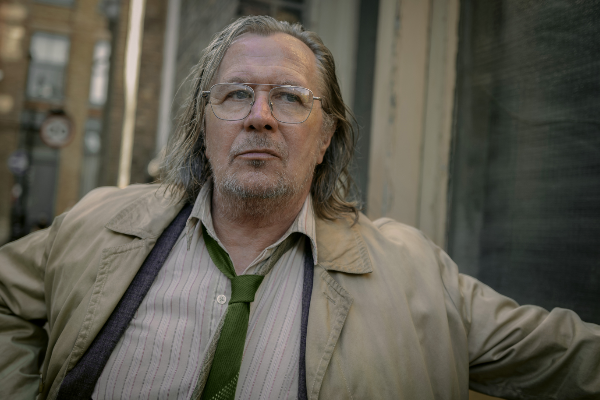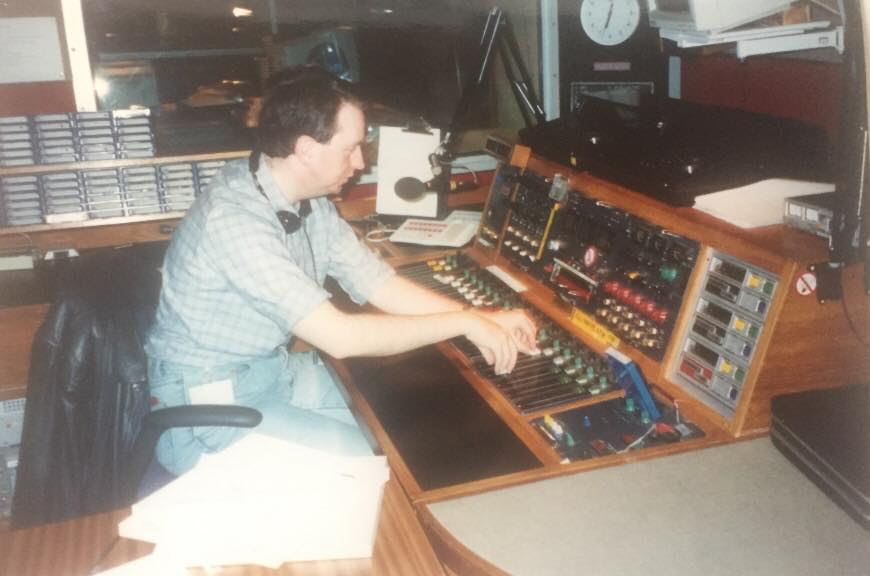A couple of years ago now, a production company wanted to talk to me because a script of mine in some way reminded them of a series they were developing. You bet I talked, and while as it happens nothing came of it, I did of course learn the name of this then-forthcoming series: it was Slow Horses.
Being thorough, and because what they said of it did sound good, I read the first Slow Horses book by Mick Herron. And then the second. Third. Fourth. I’ve lost track of how many there are now, possibly seven, but I read the lot straight through and enjoyed them tremendously. Well, in these novels the lead character Jackson Lamb is so clearly Andy Dalziel from Reginald Hill’s books that it’s distracting, but I relished them, and I particularly enjoyed the third one.
The series was made, it is truly superb, and Slow Horses season 3 has just concluded on Apple TV+ with a dramatisation of that particular novel.
In so many ways, it was wrong. But it was all the better for it. And not just because, as from the start of the TV show, you would not connect this Jackson Lamb with Andy Dalziel without help.
The third book, Real Tigers, is a particular favourite and enough so that even before the TV version aired, I was surprised to realise that I could only remember two incidents from the entire thing. Then the TV dramatisation began and I did not remember anything it was showing me. Later, working overseas and without much internet for a few days, the book was still on my iPad so, what the hell, I re-read it.
Which means when I got back and was watching the rest of the TV version, I suppose I could have winced over and over for how many total changes there were to the story. But while I’d like to debate some of the decisions and I’m not 100% keen on how certain things were seeded before later being revealed, every change was totally in keeping with the spirit of the story.
And more importantly, every change was for the better, I think.
It’s enough to make me want to read novels, watch their TV or film versions, and re-read the novels more often.
Only, if I sound like I’m over-praising the show and particularly the writer Will Smith, I think actually what I’m doing is confessing to a failure of imagination on my part. Despite whatever that company saw in my script, I could not have written this dramatisation as well as Smith because — I think — I would have been too caught up in trying to be unnecessarily faithful to the text.
Let me give you two examples, one where I did at least wonder in advance how in the hell it could be done on screen, and one where I should have but simply didn’t. The latter first.
Without spoiling anything, there is a scene in the novel set in a restaurant. A character is waiting for someone, and then something happens outside. I promise you that it’s substantially more dramatic than this sounds, but on the page, there’s this character on his own, there’s this thing that happens, and it’s all very effective. Surprising, tense, it was altogether just very good.
In the TV version, there isn’t one character in the restaurant, there are three. And the thing that happens outside, happens to a different character on screen than it did on the page.
I’ll cheerfully put my hand up to how I would not have thought of changing that character outside the restaurant, as vastly richer and more involving as that change is. But I will put my hand up with embarrassment that I would not, or at least did not, think of having two extra characters inside the restaurant even though of all the changes, that was easily a completely obvious one.
Because for one thing it’s damn hard to have a character on their own without anyone to talk plot with. And for another, one of the two extra characters is Jackson Lamb. He’s the star of the show. In the 1970s or 80s, you would shoe-horn the star into every scene — except in Police Woman, where it is shocking how little-used the title character is — and we’re a bit more sophisticated today. But still, he’s the star, and moreover he would’ve been absent from the screen and absent from the story for too long if he hadn’t been added.
So putting him there keeps his story going, plus it allows for some abrasive interactions with the other two characters which are both fun and pushing the story forward.
I’d like to think that if I had been writing this, I would have come to the same conclusion along the way, but I sense that’s bollocks.
As it most certainly is for the second scene, the one I had remembered and was waiting specifically to see how it was done because I was clueless. It’s just a scene in a pub, a conversation, and while Something Happens, it’s comparatively low-key. Okay, it’s a single punch.
But the problem is that it centres on the character of Roddy Ho. Mick Herron writes this man so well, it is an utter treat when he’s on the page, but it is really one joke repeated myriad times in deliciously different ways. Ho is more than arrogant, he is entirely up himself and on the page, there are chapters seen from his deluded perspective. It is glorious reading his descriptions of what he thinks is happening while we get what’s really going on.
It’s just that every time I would read and relish one of those chapters, I would wonder how to convey that on screen. So when it’s done in season 3, episode 1, and is done so seemingly simply and effortlessly, it did throw me out of the story for a moment. Just to applaud.
There is, of course, one other change to the old days of Police Woman or the like. You can stop what you’re doing and go watch the whole show right now. Forget waiting for a particular night on BBC1 or somewhere, definitely forget everything you were supposed to be doing today, and go watch the show.
True, it is on Apple TV+ and yes, that’s another streamer in a sea of streamers whose names end in a plus sign, but it’s also another one that has a free seven-day trial.
Let me think. Three seasons so far, six episodes per season, you can do that easily. And then you can buy the books — Amazon USA, Amazon UK.

